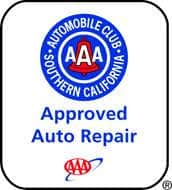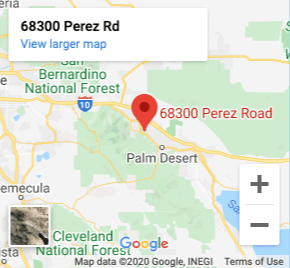Brake pads are an integral part of your car’s braking system. They’re designed to slow down your vehicle when you apply pressure to the brake pedal. If your brake pads wear out prematurely, you’ll notice a decrease in stopping power and increased chances of skidding resulting in poor brake performance.
You should replace your brake pads every 50,000 miles or sooner if you start noticing excessive noise or vibration while driving. However, there are other warning signs that indicate your brakes might need repair or replacement before they fail completely, take a toll on your braking mechanism, and demand costly repairs.
In this article, we’ll explain how to tell when you need to get a brake pad replacement and repair service
Warning Signs That Indicate You Should Replace Your Brakes
1. The Brake Pedal Is Slipping
If you feel like the brake pedal is slipping as you press it, then it could be time for new brake pads. If you have a manual transmission, check the clutch slave cylinder first. It may also be worn out.
2. There’s No Noise From The Brakes
Noise from the brakes means that the rotor disc (the metal discs that make up the brake pad) is wearing unevenly. This can cause the brake pads to rub against the rotors, which will eventually lead to brake failure.
3. Your Vehicle Steers Or Swerves More Than Normal
If your vehicle starts steering or swerving more than normal, it could mean that one or both of your brake pads needs replacing.
4. Your Brakes Are Losing Pressure
If you find yourself having to pump the brake pedal harder and longer to stop your vehicle, it could be because your brakes aren’t producing enough friction.
5. You Have A Hard Time Stopping
If you have trouble stopping your car on dry pavement, it could be due to worn-out brake pads.
6. You Feel Like You’re Driving On Ice
If you feel like your vehicle is sliding all over the road, it could be because the rotors are rubbing against the brake pads.
7. Your Brakes Aren’t Staying In Place
If your vehicle has a tendency to drift out of control, it could be because of worn-down brake pads.
8. Grinding or Squeaky Brakes
If you hear the sound of grinding or squeaky brakes, it could be because you’ve got bad brake pads.
9. Your Brakes Don’t Stop As Soon As You Press Them
If your vehicle doesn’t stop immediately after pressing the brake pedal, it could be because one or both of your brakes isn’t working properly.
10. Your Brakes Seem Unreliable
If your vehicle seems to hesitate at intersections, drive slowly through them, or take longer to stop, it could be due to worn brake pads or your brake fluid is low. Brake pads and brake fluids are essential in ensuring safety from brake issues.
Brake Repairs or Replacement
If any of these problems occur, don’t wait until your brake pads fail completely. Instead, get them replaced right away.
The best way to know whether your brake pads need replacing is to look at the condition of the brake rotor, also called a brake disc. Rotor damage is usually caused by brake fade, which occurs when the brake pads become too hot and begin to burn off.
Rotors are made of aluminum or steel. Aluminum rotors tend to last longer than their steel counterparts, but they’re not immune to wear and tear. Steel disc brakes are stronger and better able to withstand heat, so they can handle a lot of wear without fading.
Because brake pads are designed to work with the rotors, they must be replaced together. If you notice that the rotors are damaged, you’ll want to replace the entire set of brake pads.
Brake Repair or Replacement Services by a Professional Auto Repair Shop
If you’re in need of brake repair or replacement service, you’ll likely need to schedule an appointment with a brake specialist for a complete brake service.
Professional mechanics are trained to diagnose and fix common automotive issues such as faulty brake systems, engine performance issues, brake noise, suspension problems, and other brake pad issues. They’ll also be able to provide brake system repairs and routine maintenance services such as oil changes, tire rotation, and battery testing.
A good mechanic will also offer you a free visual inspection prior to performing any brake repair or replacement. He or she will check all four wheels on your car to see if they have any visible defects or cracks.
He or she may also test your brake system to determine whether it has any leaks. Finally, the mechanic will inspect the brake fluids according to the manufacturer’s recommendations, and brake rotors to ensure they aren’t warped or cracked.
Once the mechanic completes his or her inspection, he or she will let you know what needs to be done to correct the problem. Depending on the severity of the issue and the common signs related to wear and tear, he or she may recommend one of the following:
• Replace the entire braking
• Change only the front brake pads and shoes
• Replace the rear brake pads and shoes
When making your decision about which option is best for you, consider the type of vehicle you drive, its age, and where you live. For example, if you own a newer model vehicle, it’s probably safe to assume that the rotors won’t require replacement until at least 100,000 miles.
However, if you drive a classic car, you may find yourself needing to replace the rotors after only 20,000 miles. The reason for this difference is that older vehicles use cast iron brake drums instead of steel ones like those found in modern cars. Cast iron drum brakes don’t hold up well over time, especially if they’ve been exposed to extreme temperatures.
It’s important to note that even though cast iron brakes are less durable than steel ones, they can still last a long time if properly maintained. If you notice any unusual noises coming from your vehicle’s braking system, take it to a professional mechanic immediately so that he or she can identify the source of the problem through a brake inspection.
If your vehicle’s braking system isn’t working properly, it could cause serious damage to your tires, rims, and other parts of your vehicle. In addition, it could lead to accidents if you’re unable to stop safely.
Whether you drive a classic car or a brand new sports car, you should always check your brakes before driving off. If you notice any wear indicators or unusual noises coming from your car, call us at Davies Auto Care immediately. Your safety is important to us, so we provide the best brake inspections and repairs services for all types of vehicles. We offer free estimates and our auto mechanics are trained to perform brake assessment and to work on all makes and models of vehicles. Call Davies Auto Care today for your brake checks needs and get a quote!





